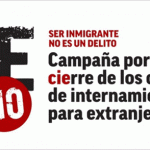
This ICSR Insight highlights 10 major themes, issues and questions that have emerged from the conference. As will be shown, the New Far Right is a new and unique challenge for Western democracies which policymakers and experts have yet to fully understand. Their success in doing so is key to making sure that modern multicultural societies remain peaceful and cohesive.
By Peter R. Neumann, ICSR Director
@ICSRblog
@PeterRNeumann
The original link: http://icsr.info/2013/04/icsr-insight-the-new-far-right-10-issues-and-questions/
Last month, ICSR – in partnership with the Community Security Trust and the Swedish National Defence College – hosted an important conference on the New Far Right, bringing together nearly 100 stakeholders from academia, politics, the media, and grassroots initiatives.
This ICSR Insight highlights 10 major themes, issues and questions that have emerged from the conference. As will be shown, the New Far Right is a new and unique challenge for Western democracies which policymakers and experts have yet to fully understand. Their success in doing so is key to making sure that modern multicultural societies remain peaceful and cohesive.
1) “The threat is real”. As the UK’s Security Minister, James Brokenshire, noted, the threat from far-right terrorism is significant, albeit “not as systematic or widespread as the al Qaeda inspired [terrorist] threat”. In UK prisons, there are currently 17 individuals who have been charged with or convicted for terrorist offences “associated with far-fight extremism”.
2) Conspiracy theory. The New Far Right is inspired – in part – by a conspiracy theory according to which Western Muslims, allied with liberal governments, plan to destroy Western democracies and replace them with a Caliphate . This movement calls itself ”Counter-Jihad”.
3) Public disorder and social cohesion. More so than terrorism, New Far Right activists have been involved in street violence and acts of public disorder. Their aggressive rhetoric divides communities and undermines social cohesion. They also campaign against the use of Islamic practices – such as ritually slaughtered halal meat.
4) Old vs. New Far Right. There are striking differences between the “old” (neo-Nazi) Far Right and so-called Counter-Jihad members like Anders Breivik. However, there also exist many similarities, and it would be wrong to ignore the continued threat from “old” far-right groups in countries such as Greece and Germany.
5) Echoes of extremism. In the British context, the New Far Right and Islamist extremists seem to be in a symbiotic relationship, confirming each other’s stereotypes and providing motives and justifications for mobilising their respective sympathisers.
6) Addressing grievances. New Far Right activism is often rooted in social, economic and cultural fears about immigration. Mainstream politicians from across the political spectrum have failed to articulate these concerns in a way that would undercut the support for far-right extremists.
7) Emerging structures. The structures of the New Far Right are increasingly pan-European, with leaders and activists from different countries coming together for joint campaigns, as well as trying to learn from each other’s successes and mistakes.
8) The Internet matters. Social media, blogs and video-sharing sites are key to understanding how the New Far Right disseminates its message, mobilises its followers, and retains a sense of cohesion despite the lack of centrally organised structures.
9) Countering the New Far Right. Government counter-radicalisation programmes – such as the British PREVENT – have mostly focused on Islamist extremism. Policymakers need to understand what lessons have been learned and how those programmes can be applied to the New Far Right.
10) Connecting the dots. For researchers, the principal task is to bring together expert communities dealing with terrorism, far-right extremism and other related threats, so that different bodies of knowledge can be better integrated.
The conference was part of ICSR’s ongoing efforts to make sense of the evolving nature of far-right extremism. For some of our recent publications on this issue, see:
The conference can be watched in full on the ICSR YouTube channel.


 January 22nd, 2014
January 22nd, 2014 





